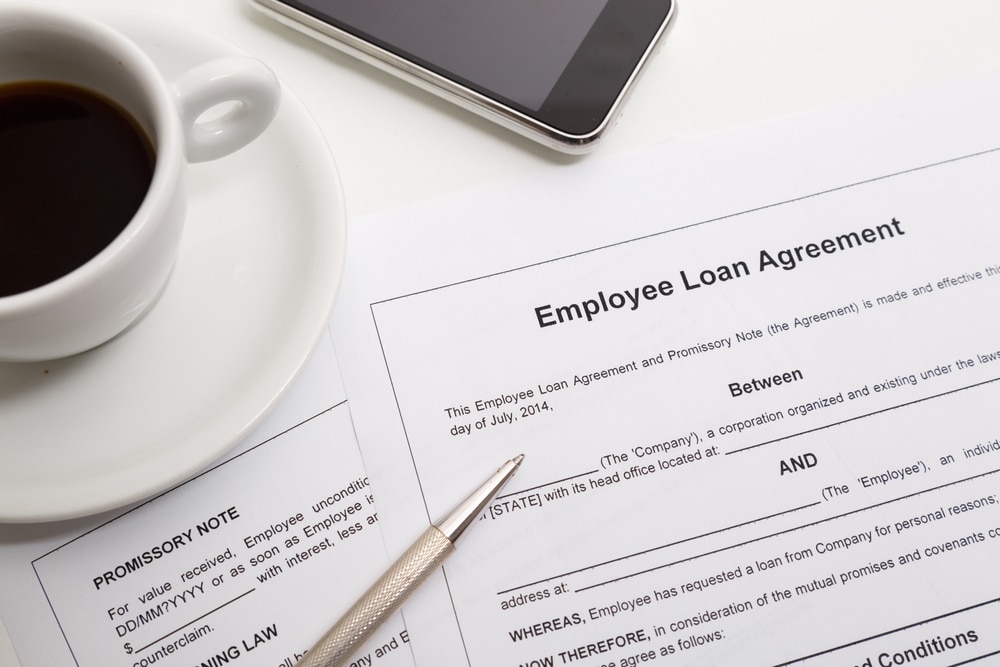Employee loans are offered by employers, and they differ widely when it comes to eligibility requirements. If you wish to borrow funds and do not qualify for other loans, you might want to explore an employee loan. Stay tuned to learn more about this type of loan.
How Does an Employee Loan Work?
The process of securing employee loans may resemble that of a personal loan, which involves completing a loan application, waiting for approval, and then receiving funds after the approval. Once you obtain an employee loan, you’ll be required to make repayment within a specified time, and the company usually deducts money from your salary.
As mentioned earlier, terms of employee loans vary from company to company. For example, Equifax offers employees loans ranging from $1,500 to $36,000, depending on the worker’s salary, while Virginia State has an employee loan limit of $500.
📈🤖 Unlock unparalleled trading potential with GPT Stocks Master AI! Revolutionize your portfolio, leveraging real-time insights and predictive analytics. Don’t miss out – step into a world where precision and profitability meet. Ready to transform your trading journey? Click “Master My Trades” now for your exclusive access! ✨🚀📊
Although employee loans attract interest, they are lower than those imposed on conventional loans.
Types of Employee Loans
It is worth mentioning that a company can offer employee loans using its funds or via a partnership with a financial institution.
Here are the various types of employee loans:
Unsecured Personal Loans
Most employers offer these loans through their partners. Your employer will set the maximum loan amount you can borrow, repayment terms, eligibility requirements, and interest rates.
Transportation Loans
If you are lucky enough, your employer may cover your transportation costs as part of employee perks. But in most cases, employers lend employees money to cater for their transportation expenses and then deduct it from their salary.
Car Loan
Do you need a car? If your employer has partners offering car loans, you can borrow funds to finance the purchase of your dream car.
Pros and Cons of Employee Loans
Pros
Low interest rates – Unlike most traditional loans, employee loans attract low interest rates. In some cases, you might not even pay the rate.
Could improve your credit rating – An employee loan is reported to a credit bureau. So, by making repayments on time, you are likely to boost your credit rating.
Employee loans are available in small amounts – Unlike many traditional loans that usually have a minimum loan amount of $1,000, employee loans make it possible for people who want to obtain a few hundred dollars to access funds.
Cons
Stricter eligibility requirements – Unfortunately, you may not qualify for an employee loan due to the strict loan requirements adopted by your employer. For example, the employer might require you to work for a certain number of months before becoming eligible for an employee loan.
Employee loans may come with extra charges – An employer might ask you to pay an application fee when securing an employee loan. Also, you could be charged a late fee if you fail to repay your loan on time.
Lower Paycheck – As mentioned earlier, loan repayments are automatically deducted from your salary. This leaves you with less funds to settle bills like rent and electricity.
Alternatives to an Employee loan
If your employer does not offer an employee loan and you need to borrow money, you can explore these options:
Unsecured Personal Loan From External Lender
You can apply for such a loan with an online lender or bank. However, you need to have a good credit score to secure such loans.
Credit Cards
If you do not qualify for a personal loan, you can obtain a credit card. The best part is that most issuers do not consider your credit history.
Home Equity Loans
If you have a home, you might qualify for home equity loans, which tend to attract affordable interest rates. However, bear in mind that you will provide your home as collateral, meaning you can lose it if you fail to repay.
Retirement Loans
If you have a retirement account, you can secure a retirement loan with no credit checks involved. Moreover, repayment terms tend to be longer than most traditional loans.

